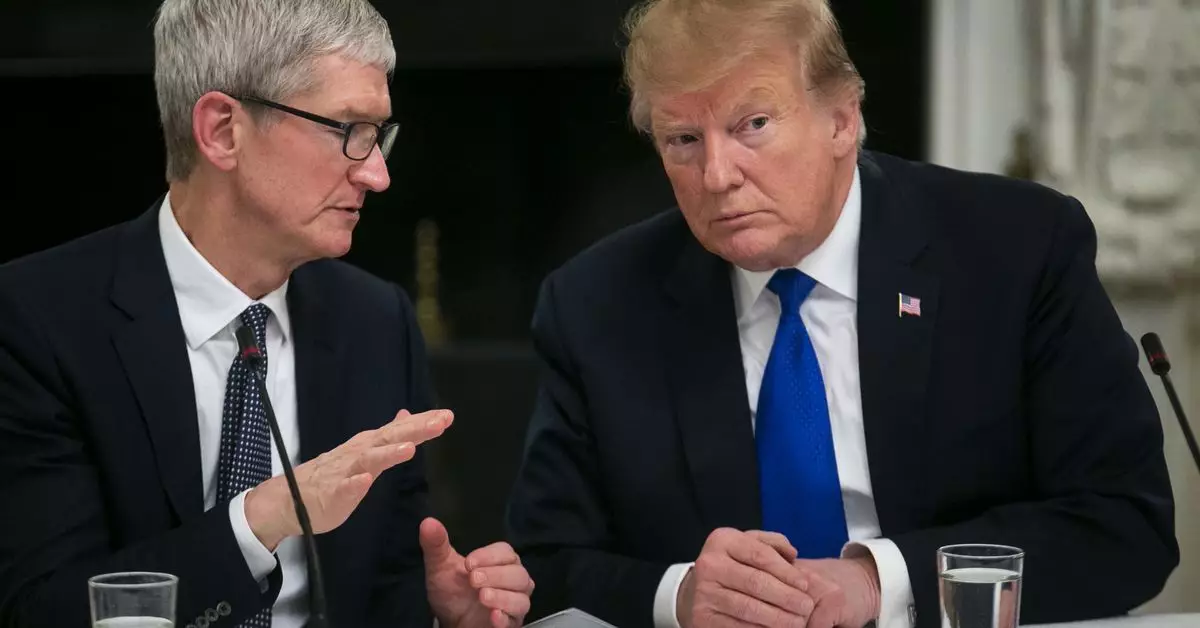On the eve of Donald Trump’s anticipated second term as president, the business world is abuzz with the prospect of corporate leaders like Apple CEO Tim Cook forging strategic connections. Cook’s recent dinner with Trump at Mar-a-Lago has drawn attention not only because it marks the two leaders’ first meeting since the election, but also because it exemplifies the intricate dance between technology giants and political power. In an era where tech companies are under increasing scrutiny, this meeting raises questions about alignment, influence, and future business landscapes.
Tim Cook’s relationship with Trump has previously been categorized as direct and pragmatic, an approach that other tech executives might envy. During Trump’s first term, Cook carved out a rapport with the president while navigating critical issues like immigration policy—which could impact Apple’s workforce—and taxation strategies that have significant implications for corporate giants. This dinner signals a rekindling of that engagement, implying Cook’s intent to influence Trump as certain economic policies are revisited.
Additionally, it’s pivotal to consider not just the personal connections, but the underlying implications of these high-level meetings. As globalization remains a contentious issue—especially regarding tariffs—the conversation may inevitably steer towards the potential impact on Apple’s supply chain and revenue streams. The precarious balance between business needs and governmental policies serves as a potent reminder of how intertwined corporate success is with political landscape.
Adding another layer to this complex relationship is the scrutiny Apple faces from European regulators. As elections bring about potential shifts in policy, Cook’s discussions with Trump could revolve around ongoing antitrust allegations and significant fines that the company faces in Europe. Reportedly, Trump previously made claims about Cook reaching out to him to express concerns regarding these penalties, highlighting the political dimensions of digital policy enforcement. This aspect of their conversation underscores the potentially pivotal role an elected U.S. president can have on international business practices.
Cook’s meeting with Trump joins a series of recent engagements with top tech executives, including Sundar Pichai of Google and Amazon’s Jeff Bezos, signifying a unified push from the technology sector towards political engagement. These leaders are not just talking shop; they are securing their presence in the decision-making circles that affect their industries. The early involvement of tech companies in financial support for Trump’s inauguration also illustrates a calculated approach to ensuring that they remain on friendly terms with the administration.
As we reflect on the implications surrounding this dinner, it is crucial to note that such engagements are not solely about personal relationships. They encapsulate a multifaceted narrative of influence, strategy, and adaptation that is ongoing between major corporations and political figures. The outcome of this intricate interaction could dictate the future of the technology industry and its operational efficacy under governmental oversight. Ultimately, Cook’s dinner with Trump serves as a symbol of the larger corporate calculus at play in contemporary politics—a blend of opportunity, power, and the continuous quest for favorable conditions in an unpredictable economic environment.

